'We have treated some of the symptoms but not cured the patient from its fever,' says Ursula von der Leyen
Aysu Bicer |21.11.2022
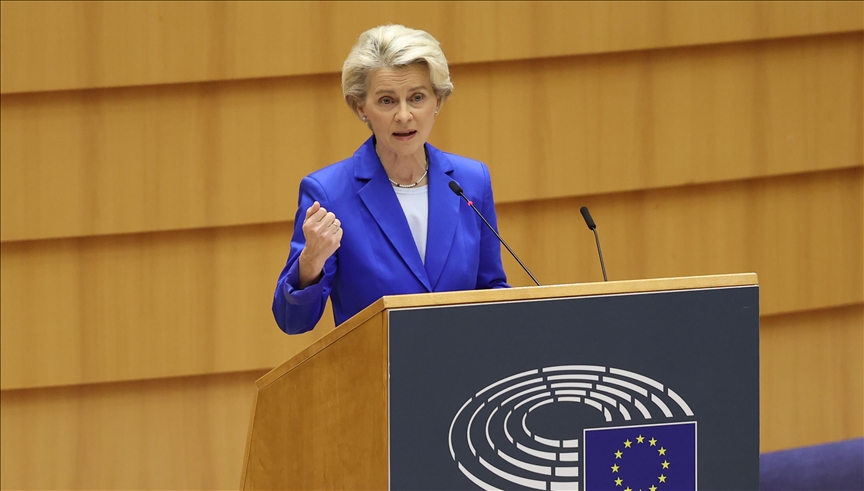
The UN climate change conference COP27 “marks a small step towards climate justice,” said European Commission President Ursula von der Leyen on Sunday.
At the conference in Sharm el-Sheikh, Egypt, nearly 200 countries made a historic deal to establish a “loss and damage” fund to help vulnerable countries hit hard by climate change.
"We have treated some of the symptoms but not cured the patient from its fever," von der Leyen said. "We are rebuilding trust. This is crucial moving forward because there can be no lasting action against climate change without climate justice."
She also said the goal of a temperature rise of no more than 1.5C was kept alive at COP27 yet added: "Unfortunately however, it has not delivered on a commitment by the world's major emitters to phase down fossil fuels, nor new commitments on climate mitigation."
The “loss and damage” fund is a big win for poor countries, which have long called for being compensated for climate-related disasters. Rich countries, however, have long opposed the idea.
Details on how the fund would operate, however, remain murky. The text leaves a lot of questions unanswered about when it will be finalized and become operational, and how exactly it would be funded.
Sunday’s agreement came after marathon talks between delegates from about 200 countries that exceeded the final date of the summit, which was originally scheduled to conclude on Friday.
What Did COP27 Accomplish?
BY EMILY HALNON |NOVEMBER 22, 2022

COP27 in Sharm el-Sheikh, Egypt. Photo: Ministry of Environment – Rwanda via Flickr Creative Commons
The United Nations climate conference COP27 wrapped up this weekend in Sharm el-Sheikh, Egypt. Negotiators kept the midnight oil burning to work through one of the biggest issues: whether to create a loss and damage fund to help developing nations deal with the consequences of climate change.
While negotiators ultimately decided to approve this fund, they did nothing to curb global emissions—leaving climate advocates disappointed in the lack of action on this critical issue.
Columbia Climate School sent a number of delegates to the 27th annual convening of the climate conference, where they delivered talks, hosted panel discussions, forged new partnerships and discussed ideas with envoys from around the world. We checked in with a few representatives from Columbia Climate School to get their take on what happened, in and outside of the negotiation room, and to weigh in on the most promising decisions—and where negotiations fell short.
“The climate crisis is worsening faster than predicted and requires serious action,” said Alex Halliday, founding dean of Columbia Climate School. “It’s great to see so many gathering to formulate ideas, strategies, examples and commitments. But things have to change much faster.”
The Loss and Damage Fund
Negotiators at COP27 agreed to create a fund that will support developing nations as they deal with climate disasters. This concept is informed by the idea that richer nations have disproportionately caused the climate crisis through their higher use of fossil fuels—while poorer nations bear the brunt of the costs—and suffer some of the most devastating climate disasters. This fund will require developed nations to help foot the bill for the climate crisis in vulnerable countries.
“The establishment of this fund is a victory for climate justice,” said Perrine Toledano, director of research and policy at the Columbia Center on Sustainable Investment. “Developing countries have been asking for it since 1992.”
While this turned into the main headline action out of COP27, it wasn’t even on the agenda when the conference started, said Melody Braun, senior staff associate at the International Research Institute for Climate and Society (IRI).
Representatives from the global south pushed for the fund as soon as the conference opened and forced discussions to go late into the night on the first day to ensure it had a place on this year’s agenda.
“The growing anger and sense of hypocrisy among developing countries was on full display in Sharm el-Sheikh,” said Jason Bordoff, co-founding dean of Columbia Climate School, in a post about the event. “Wealthy nations have failed to fulfill their promises to provide climate finance to the poorest countries.”
The details of the fund—and how it will be enacted—remain unclear, but Toledano reports there were also financial micro-agreements between nations that she hopes can serve as a model for how to implement this kind of financial relationship.
Lack of Action on Global Emissions
One of the greatest disappointments of COP27 was the inability to address global emissions reductions, the experts agreed. The Intergovernmental Panel on Climate Change has stressed that global emissions need to be cut by 43 percent by the end of the decade in order to limit global warming to 1.5 degrees, the amount agreed upon through the Paris Agreement in 2015. But, the global community is not on track to do that—and did nothing to change that reality at COP27.
“We negotiated the way forward back in Paris,” said John Furlow, director of IRI. “Now the problem is that we’re not doing what we said.”
It doesn’t help that climate negotiations have involved such a piecemeal approach to a global problem, said Furlow. Or that the highest emitters won’t fully commit to sufficient carbon reductions until other nations do the same.
“The way that we do things here on Earth is to mostly lead country by country, government by government,” said Furlow. “The atmosphere doesn’t care where the carbon is coming from. It’s all cumulative and it all mixes together.”
“The economic rivalry between the US and China, and China’s status as both an economic powerhouse and a developing country, make taking action at the national level difficult,” he continued. This problem won’t be solved without China’s full participation; China is responsible for over a quarter of annual emissions, he said.
“We have to move beyond this ‘they need to go first attitude’ or the impacts are just going to get worse and worse,” said Furlow.
The most vulnerable countries will continue to suffer the greatest consequences without meaningful action toward fossil fuel reduction, which could minimize, or erase, the work of any loss and damage fund.
“COP27 failed to raise commitments on mitigation and phasing out of fossil fuels,” said Toledano. “Which will mean more loss and damage for everyone and in particular for the most vulnerable. Climate inaction raises the contribution needs to a loss and damage fund and if these needs are not satisfied, the fund might just be a drop in the ocean.”
“This is a temperature goal that would literally allow certain countries to stay alive,” Braun added. “And beyond needing to enable countries to survive, we should be positioning people to thrive.”
Outside the Negotiation Room
While most of the COP27 news and hot takes will focus on the negotiations, Braun said there’s a lot of important work that happens outside of the negotiation room.
“It’s the only event of the year that brings together people from all over the world that work on the same climate issues, like mitigation, adaption, and loss and damage,” she said. “And when you put them all together, magic happens.”
While Braun and Furlow didn’t spend much time in negotiation rooms, they accomplished a lot at the conference on behalf of IRI. They spoke at events, shared information about what IRI does, and connected with potential partners all over the world to discuss specific, concrete implementation tools that can help governments strengthen adaptation plans and strategies.
IRI focuses on supporting developing countries as they deal with climate challenges. Braun estimates they made upwards of 20 promising connections that could turn into new collaborations for capacity building, climate services, and efforts directly supporting adaptation on the ground.
“We connected with many potential new partners that could turn into new research or new projects that will solve real climate problems,” said Furlow.
Columbia Climate School at COP27
In addition to the work of IRI, the Columbia Climate School had a strong presence at COP27 this year. Here’s a roundup of some of the many places delegates could be found during the conference.The Climate School co-hosted a Talanoa dialogue to discuss how to accelerate climate breakthroughs in small island developing states, as they’re among the nations hit hardest by climate change.
They co-sponsored the Climate Justice Pavilion to amplify the voices of communities disproportionately impacted by climate change.
Columbia Climate School’s Ben Mylius led a workshop with Columbia students exploring human reasons we connect to the environment and why those reasons make climate change so important to address.
Sustainability Management student Jiangnan Shen gave a talk about how board games can contribute to climate education and action.
The Columbia Business School and the Columbia Climate School co-hosted an in-depth discussion on climate and finance and a roundtable discussion focused on the next generation of climate leaders.
Biological oceanographer Sonya Dyhrman from Columbia Climate School’s Lamont-Doherty Earth Observatory presented her research in an event around ocean-based carbon dioxide removal.
Maria Dombrov of the Climate School’s Center for Climate Systems Research spoke at a panel about electric mobility in developing countries. Dombrov also established an Israeli Research Hub with the Urban Climate Change Research Network.
The U.S. and China hold the world's climate future in their hands
Illustration: Aïda Amer/Axios
The resumption of U.S.-China climate talks at the recent COP27 summit is a positive sign for global cooperation on climate change, but it's not clear how both sides will now follow through at home to meet their climate commitments.
Why it matters: The global community will not be able to meet its climate targets without stepped-up decarbonization efforts in the U.S. and China, which are the world's two largest emitters.
Driving the news: U.S. climate envoy John Kerry and his Chinese counterpart Xie Zhenhua held "very candid" discussions at the UN climate summit in Egypt that concluded over the weekend, Xie said. They didn't reach a new bilateral agreement, but Xie and Kerry made it clear talks would continue.
- For the U.S., COP27 was a chance to demonstrate the actions the Biden administration is taking at home, after passing the most far-reaching climate bill in U.S. history.
- The U.S. also sought to encourage other nations to commit to making more ambitious emissions cuts.
- The U.S. and China still have work to do together on a cooperative agreement they signed during COP26 in Glasgow last year, particularly when it comes to reducing methane emissions and being more transparent about them.
Between the lines: The summit resulted in a historic agreement among nearly 200 nations to provide funds for countries that did not contribute much to climate change but are suffering much of the damage, such as Pacific island nations.
- But gathered nations failed to agree to phase out the use of all fossil fuels, instead focusing only on limits to coal use. They also did not include an emissions peaking year of 2025, which studies show would be needed to reach the 1.5-degree Paris target.
The backstory: President Biden and Chinese leader Xi Jinping agreed just a week ago during their meeting on the sidelines of the G20 in Bali to resume climate cooperation, which Beijing had cut off after House Speaker Nancy Pelosi visited Taiwan over the summer.
- Prior to that, Xie and Kerry had been speaking and gathering negotiating teams together to work on areas of agreement, and some had expected another document to be signed at COP27.
- The resumption of climate cooperation raised hopes the climate summit might yield a significant deal, as U.S.-China climate talks helped pave the way for the Paris Agreement in 2015.
Yes, but: A new report from a think tank in Finland has found that though China's overall carbon emissions are falling, rising energy demand is likely to slow the rate at which China achieves its decarbonization goals.
- At the summit, Biden said the U.S. is on track to meet its climate targets. However, this will require spending from a divided Congress and the use of executive actions that could be thwarted by the courts.
What to watch: The agreement on climate damages, which China supported, is short on details and does not specifically include China among the countries that would need to pay into the fund.
- The “who pays” question remains unsettled. “The decision made it clear that this is something to be sorted out next year," Li Shuo of Greenpeace East Asia told Axios via email.
- In the lead-up to the summit, Xie said countries should receive compensation, but "it is not the obligation of China to provide financial support."
- Negotiations on how the fund will work are likely to revisit this topic starting at COP28 next year


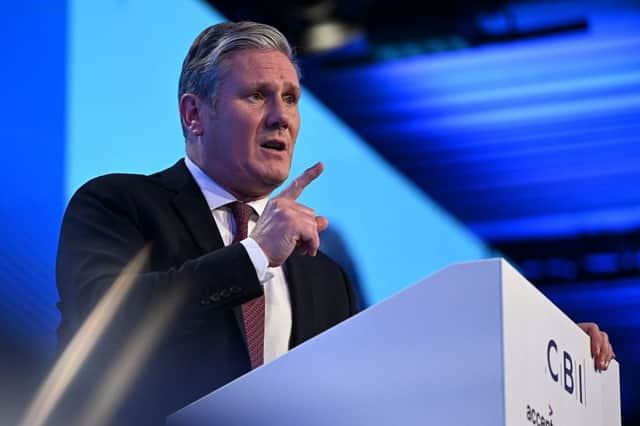

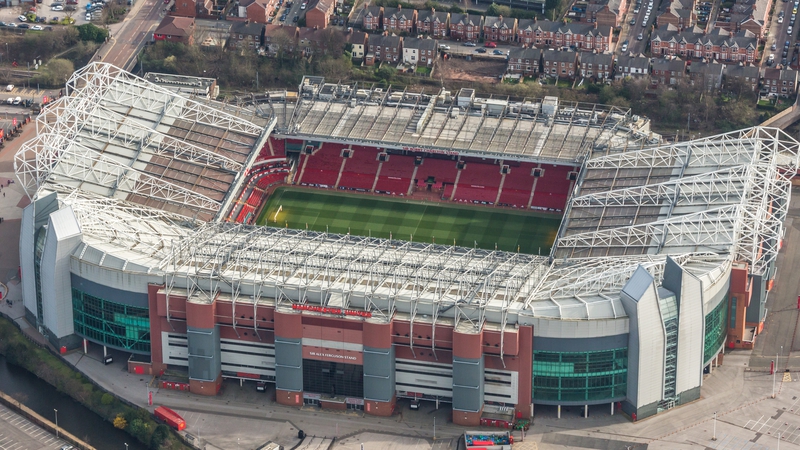

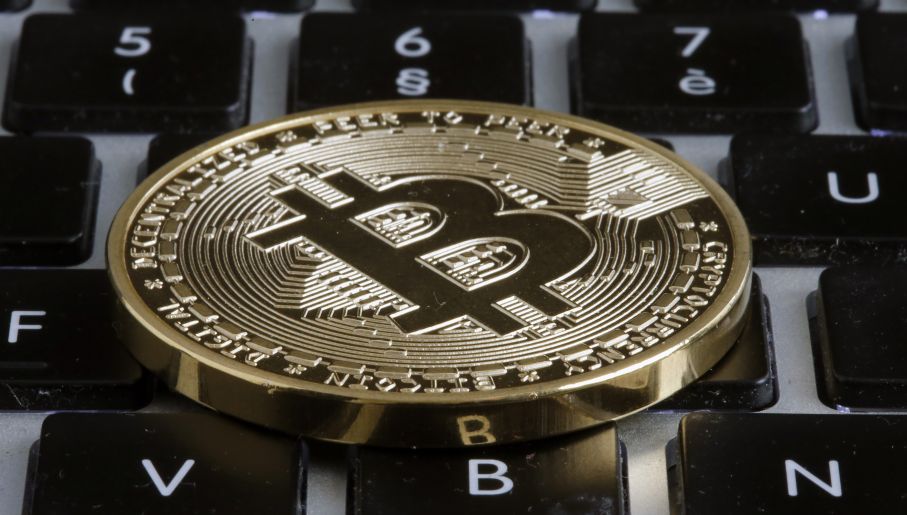
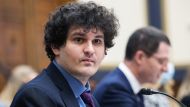
:quality(70)/cloudfront-eu-central-1.images.arcpublishing.com/thenational/C3YSQJU6VG7OIL5X3YEIEOON6U.jpg)
:quality(70)/cloudfront-eu-central-1.images.arcpublishing.com/thenational/TUK2ZJD6OMN6GMKEJNOADDZ5XQ.jpg)
:quality(70)/cloudfront-eu-central-1.images.arcpublishing.com/thenational/QXGRYWO2N5TSFFQFY5JP4VAC64.jpg)
:quality(70)/cloudfront-eu-central-1.images.arcpublishing.com/thenational/AC4WTJIQE4DTHVAKLESTZG5Q6A.jpg)
:quality(70)/cloudfront-eu-central-1.images.arcpublishing.com/thenational/JMHSTN4DSW3RQUIPJCX3Z7CCWE.jpg)
:quality(70)/cloudfront-eu-central-1.images.arcpublishing.com/thenational/XCWED5EYNU5WH3CU23CNISIUBA.jpg)
:quality(70)/cloudfront-eu-central-1.images.arcpublishing.com/thenational/WRJ4AWPQN5KWXJNTVAUOIYSEUA.jpg)
:quality(70)/cloudfront-eu-central-1.images.arcpublishing.com/thenational/6EZSGLSLOSIBSRZSR3A4UF7NAU.jpg)
:quality(70)/cloudfront-eu-central-1.images.arcpublishing.com/thenational/5HPZ4JPTHW72UZG5YBI37LZQ2U.jpg)
:quality(70)/cloudfront-eu-central-1.images.arcpublishing.com/thenational/BYXBIHXRAQZSHQEYQQDZCWDX5U.jpg)
:quality(70)/cloudfront-eu-central-1.images.arcpublishing.com/thenational/K5XU5Q3RXGTJRAMZ7KXT4NQ3YU.jpg)
:quality(70)/cloudfront-eu-central-1.images.arcpublishing.com/thenational/RM6BJHHTHOCNTS7OUY4YA3YJLE.jpg)
:quality(70)/cloudfront-eu-central-1.images.arcpublishing.com/thenational/TONV5BTVVBSBTVJPRF36VCOP7Y.jpg)
:quality(70)/cloudfront-eu-central-1.images.arcpublishing.com/thenational/6WCYEKWBR4YOL4M2BGNHRUXEBI.jpg)
:quality(70)/cloudfront-eu-central-1.images.arcpublishing.com/thenational/KYEO2PNDE3ENXY6EAARTMVOEHU.jpg)
:quality(70)/cloudfront-eu-central-1.images.arcpublishing.com/thenational/BEXQN4IJ6LZITPZOELGV55M3RQ.jpg)
:quality(70)/cloudfront-eu-central-1.images.arcpublishing.com/thenational/LGMZOFISGN6KPRIVYUOQHZQCU4.jpg)
:quality(70)/cloudfront-eu-central-1.images.arcpublishing.com/thenational/HWSOPP7FEBN2AZRDC5X565F3BA.jpg)
:quality(70)/cloudfront-eu-central-1.images.arcpublishing.com/thenational/CTZWNVBJ2FRMOQTFCX6ARVH4EI.jpg)